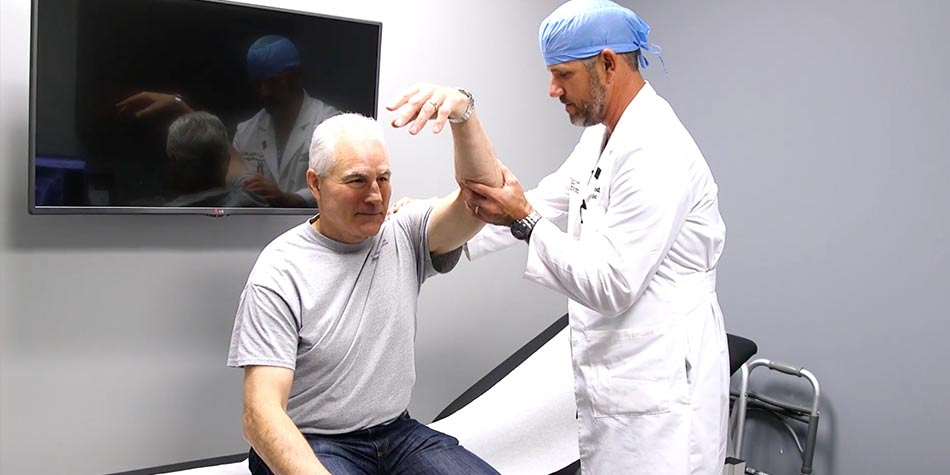
The surgeons at Southern Joint Replacement Institute (SJRI) have long been ahead of the curve in providing their patients the most advanced surgical techniques for total joint replacement. Once again, this leading-edge team is advancing quality, patient-centered care by offering patients the option of outpatient joint replacement.
According to orthopaedic surgeon Jeffrey T. Hodrick, MD, significant advancements in anesthesia techniques, pain management and rehabilitation protocols now make it possible for joint replacement patients to go home the same day as their surgery. The ideal candidate for outpatient joint replacement is one who is healthy, motivated and has support when they go home.
"This shift to outpatient surgery is an evolution that has happened after years of study and evaluation," said Dr. Hodrick. "It has been a gradual progression and encompasses a great deal of innovation in the care and treatment of the joint replacement patient."
According to Dr. Hodrick, surgeons have long been sending joint replacement patients home the day after surgery, but often, patients did not rest well in the hospital and found the over-night stay stressful. "In talking with our patients, we learned that they would be more comfortable and better satisfied in their own home the night of surgery," he said. "And if you think about it, we are only sending them home about 12 hours sooner."
"Just as surgical techniques and implants have improved, our innovations in the administration of anesthesia, pain management and rehabilitation have also vastly enhanced the delivery of care," he said. "Today, outpatient joint replacement can be performed safely with outstanding results and an exceptional experience. Our patients love it."
Outpatient joint replacement surgery is appropriate for patients receiving a total or partial knee replacement as well as a hip replacement. Those who are planning to go home the same day as their surgery receive a spinal anesthetic "nerve block" and light sedation instead of a general anesthetic. General anesthetic requires ventilation and often produces adverse post-surgical side effects such as nausea, grogginess and weakness. Similarly, shoulder joint replacement can also be performed as a same day surgery.
"Patients are alert following surgery and usually are up walking within a couple of hours after the procedure," said Dr. Hodrick. "Early pain management is aided by an anesthetic injected into the joint during surgery that relieves pain for about 24 hours. Or, in the case of shoulder surgery, by a regional nerve block. The localized anesthetic aids in early mobility and gives patients confidence in their new joint implant."
Education is a critical aspect of delivering high-quality care for joint replacement and is key to the protocols developed by the surgeons at SJRI. Patients receive extensive education and instruction prior to surgery, which aids in reducing anxiety before and after surgery. Patients walk before they go home and receive full post-surgical instructions from nursing and rehabilitation staff before discharge.
Most of the outpatient procedures are performed in th state-of-the-art TriStar Centennial Advanced Joint Replacement Institute. However, patients in West Tennessee now have the convenient option of outpatient surgery at the Joint Replacement and Othorpaedic Center at TriStar Horizon.
"Not so many years ago, joint replacement required a 3-5 day hospital stay," said Dr. Hodrick. "It is very gratifying to be able to change that dynamic for our patients and give them the option of same day surgery."